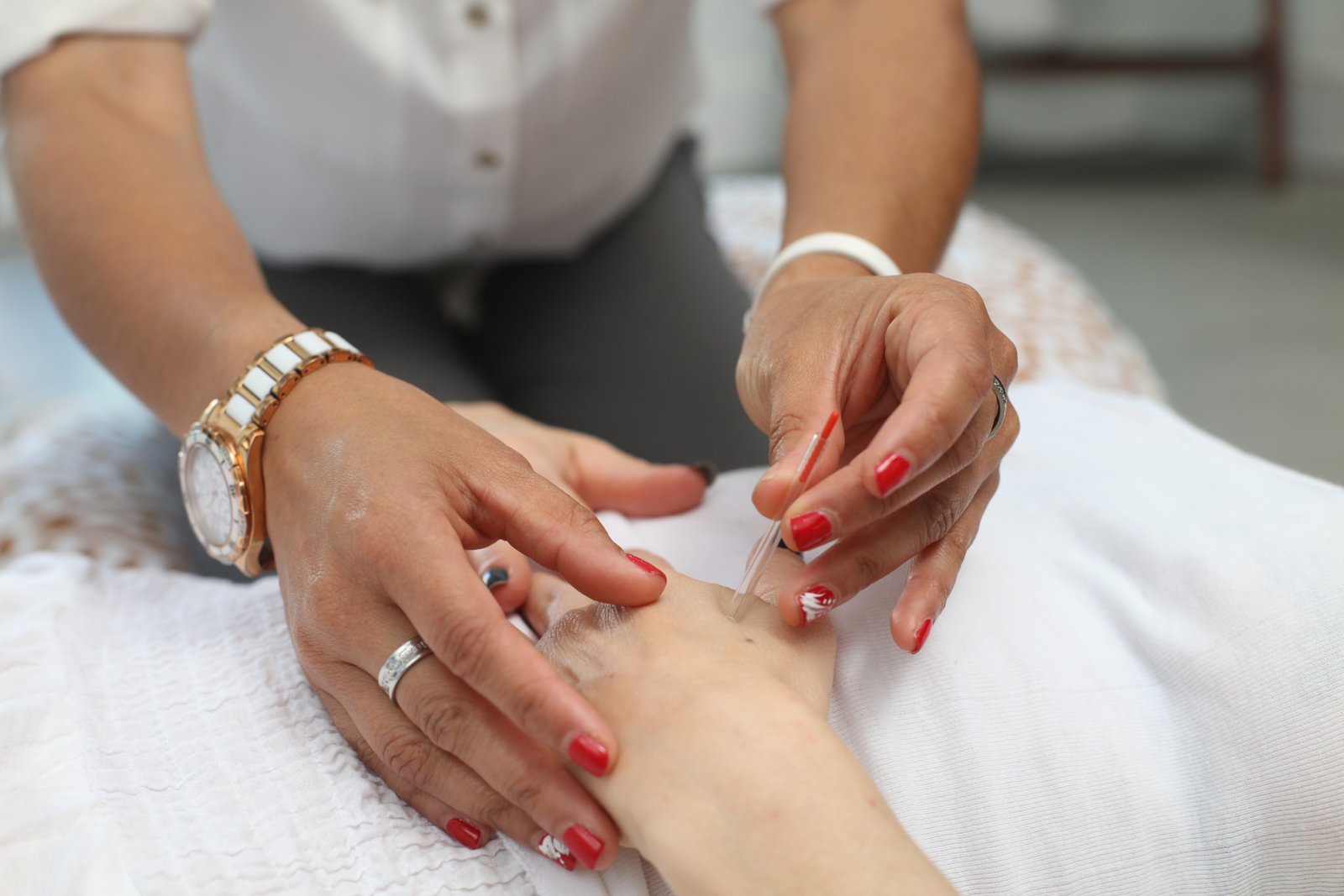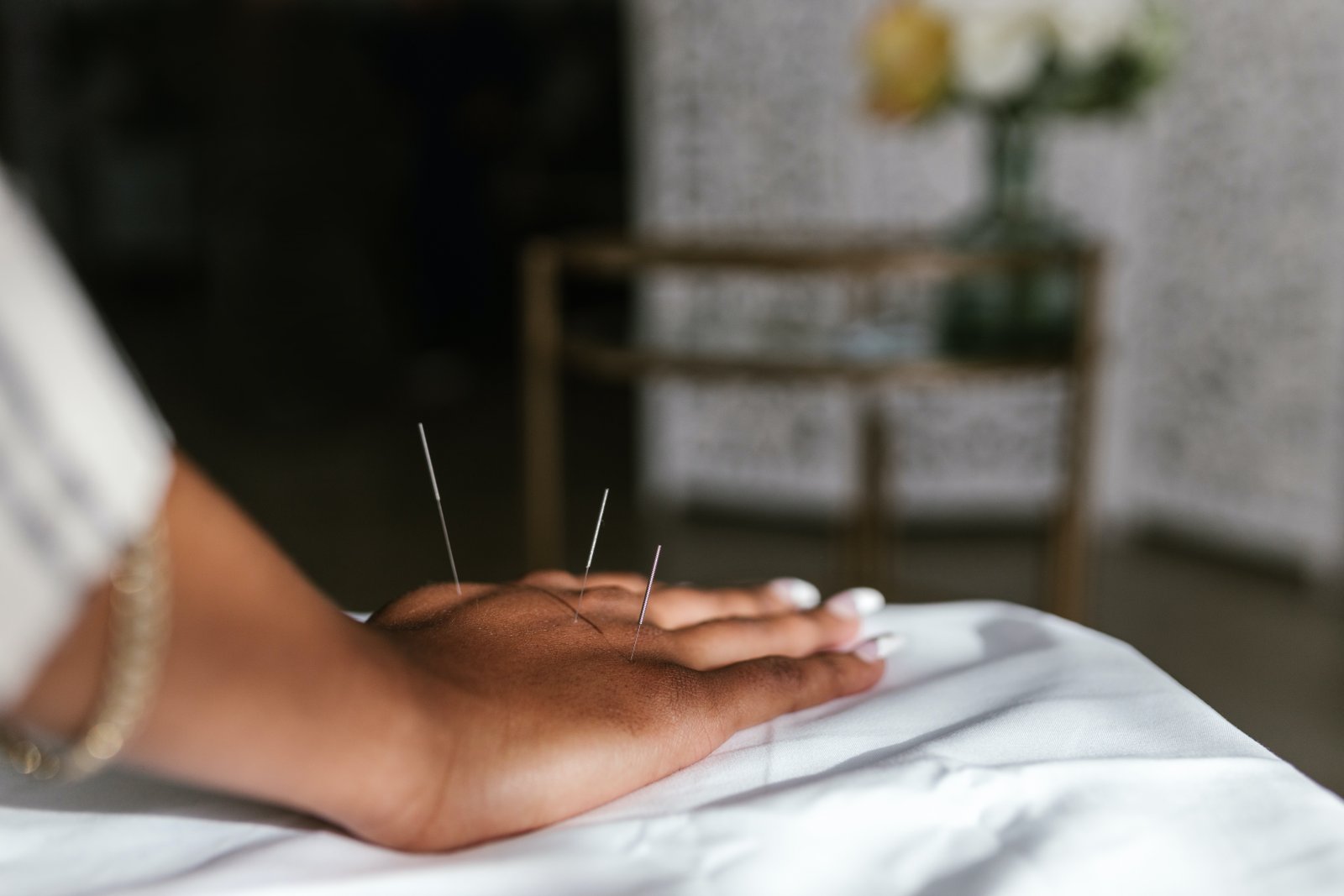Traditional Chinese Medicine (TCM) is a system of medicine that...
Acupuncture
"Unblocking the energy in your body"
Aupuncture
When you want to get your body feeling fantastic, acupuncture could be the answer.



How Does Acupuncture Work?
Acupuncture is an ancient Chinese medical practice that has been used for centuries to treat various health conditions.
Acupuncture involves the insertion of thin needles into specific points on the body. These points, known as acupuncture points, are believed to be connected by energy channels, or meridians, that flow throughout the body.
The aim of acupuncture is to regulate the
meridians or channels of the body to unblock the stagnation of Qi(energy). It is a
principle of Chinese medicine that disease is caused as a direct result of these energy
blockage within the body. The channels are related to the internal organs which,
when out of balance, are another important factor in causing disease.
Although acupuncture has been practiced for thousands of years, its mechanism of action is still not fully understood. However, there are several theories that attempt to explain how acupuncture works.
The Gate Control Theory suggests that acupuncture works by blocking pain signals from reaching the brain. According to this theory, the needles stimulate nerve fibers in the skin and muscles, which sends signals to the spinal cord. These signals can interfere with pain signals, blocking them from reaching the brain.
The Endorphin Theory suggests that acupuncture works by stimulating the release of endorphins, which are the body's natural painkillers. When the needles are inserted into the skin, they stimulate nerve endings that send signals to the brain to release endorphins.
The Neurotransmitter theory suggests that acupuncture works by affecting the levels of neurotransmitters in the body. Neurotransmitters are chemicals in the brain that transmit signals between nerve cells. Acupuncture may stimulate the release of neurotransmitters such as serotonin and dopamine, which can help to reduce pain and improve mood.
The Circulatory theory suggests that acupuncture works by improving the circulation of blood and oxygen throughout the body. The needles may stimulate the release of nitric oxide, a chemical that dilates blood vessels and improves blood flow.
What Can Acupuncture Treat?
Acupuncture has been effectively used to treat a wide range of health conditions, including:
Chronic pain, such as back pain, neck pain, and arthritis;
Headaches and migraines;
Menstrual cramps and other menstrual issues;
Digestive problems, such as irritable bowel syndrome (IBS) and nausea;
Anxiety and depression
Insomnia;
Allergies and asthma
Infertility...
How Effective is Acupuncture?
The effectiveness of acupuncture depends on the condition being treated and the individual receiving the treatment.
In general, acupuncture is considered a safe and low-risk treatment. However, some people may experience side effects such as soreness or bruising at the site of the needles.
What to Expect During an Acupuncture Session?
During an acupuncture session, the practitioner will first ask about your health history and any symptoms you are experiencing. They will then examine your tongue and pulse, which are important diagnostic tools in traditional Chinese medicine.
Next, the practitioner will insert thin needles into specific acupuncture points on your body. You may feel a slight prick or tingling sensation. This “needle sensation”
means that the treatment is beginning to have effect. Sometimes you might feel
numbness at the point or an energy transfer along the meridian to another part of
the body.
The needles will typically remain in place for 15-30 minutes,
during which time you may feel a deep sense of relaxation. After the needles are removed, you may feel a temporary soreness or bruising at the site of the needles, but this typically subsides within a few hours.
Your acupuncturist may also recommend other complementary therapies, such as herbal medicine or dietary changes, to support your overall health and well-being.
"The art of medicine is long and arduous, but the reward is great if one does not tire of it."
Sun Simian 618-907
Check Out Our Posts: About TCM.

Is Traditional Chinese Medicine (TCM) Safe? Exploring the Benefits and Risks of TCM
Traditional Chinese Medicine (TCM) has been used for thousands of...

Acupuncture: An Ancient Healing Practice for Modern Times
Introduction Acupuncture is an ancient practice that has been used...
If you would like to find out more about how
Acupuncture can help you.
Take control of your health and transform your life with the help of TCM. Contact us now to learn more about our personalized treatment options.

